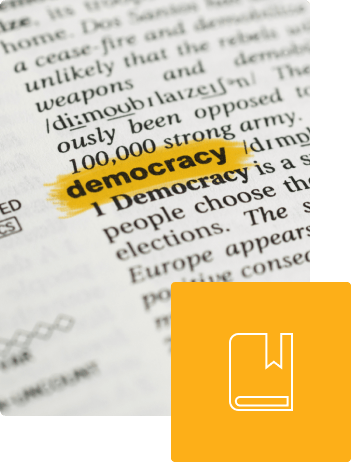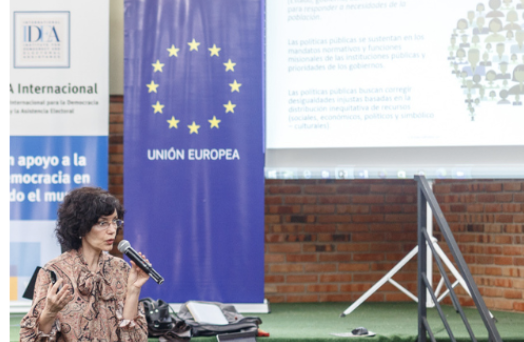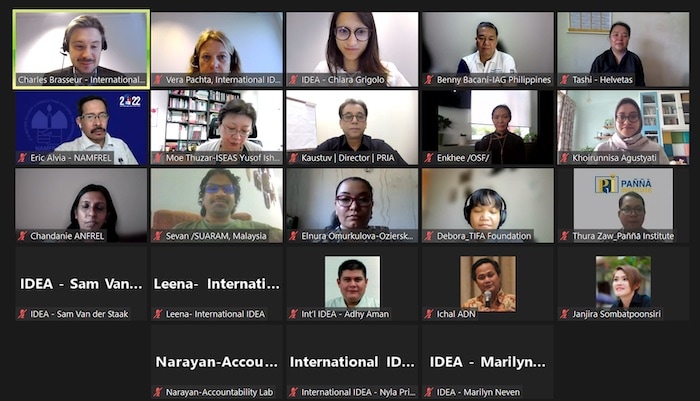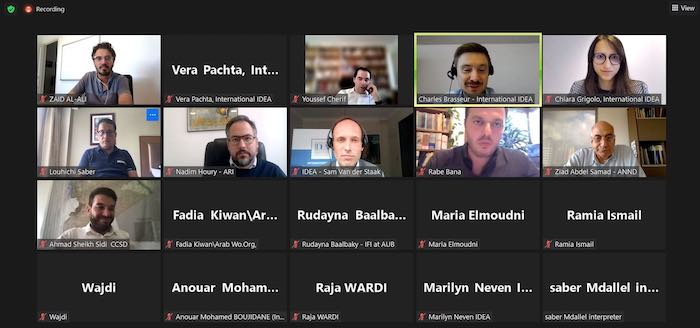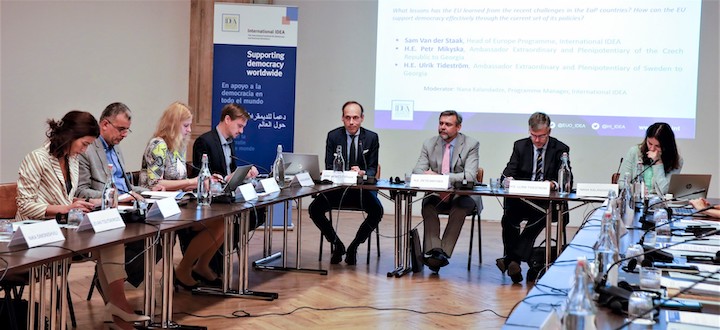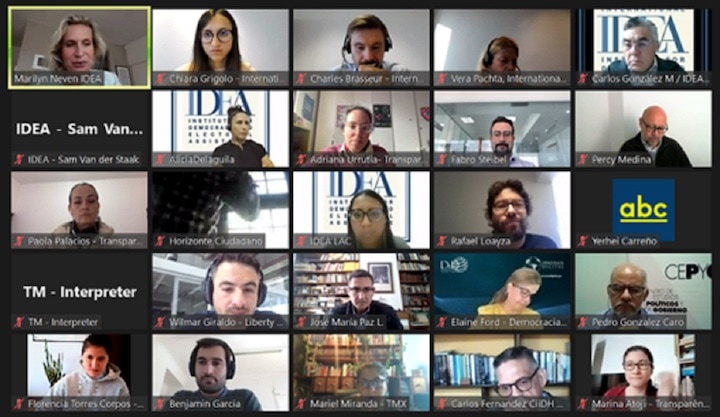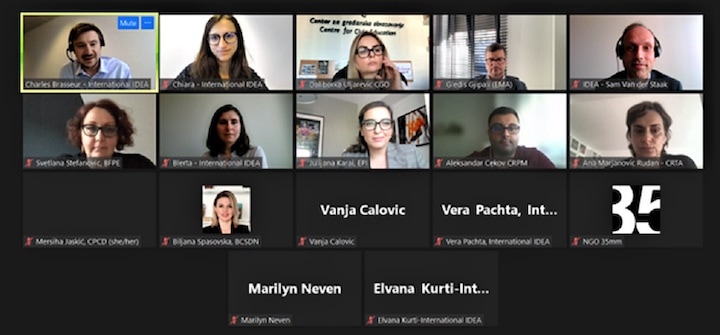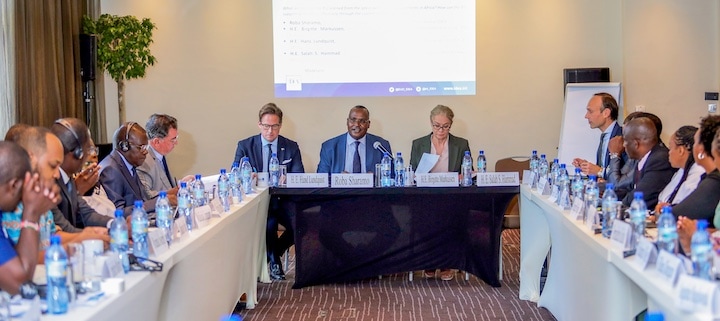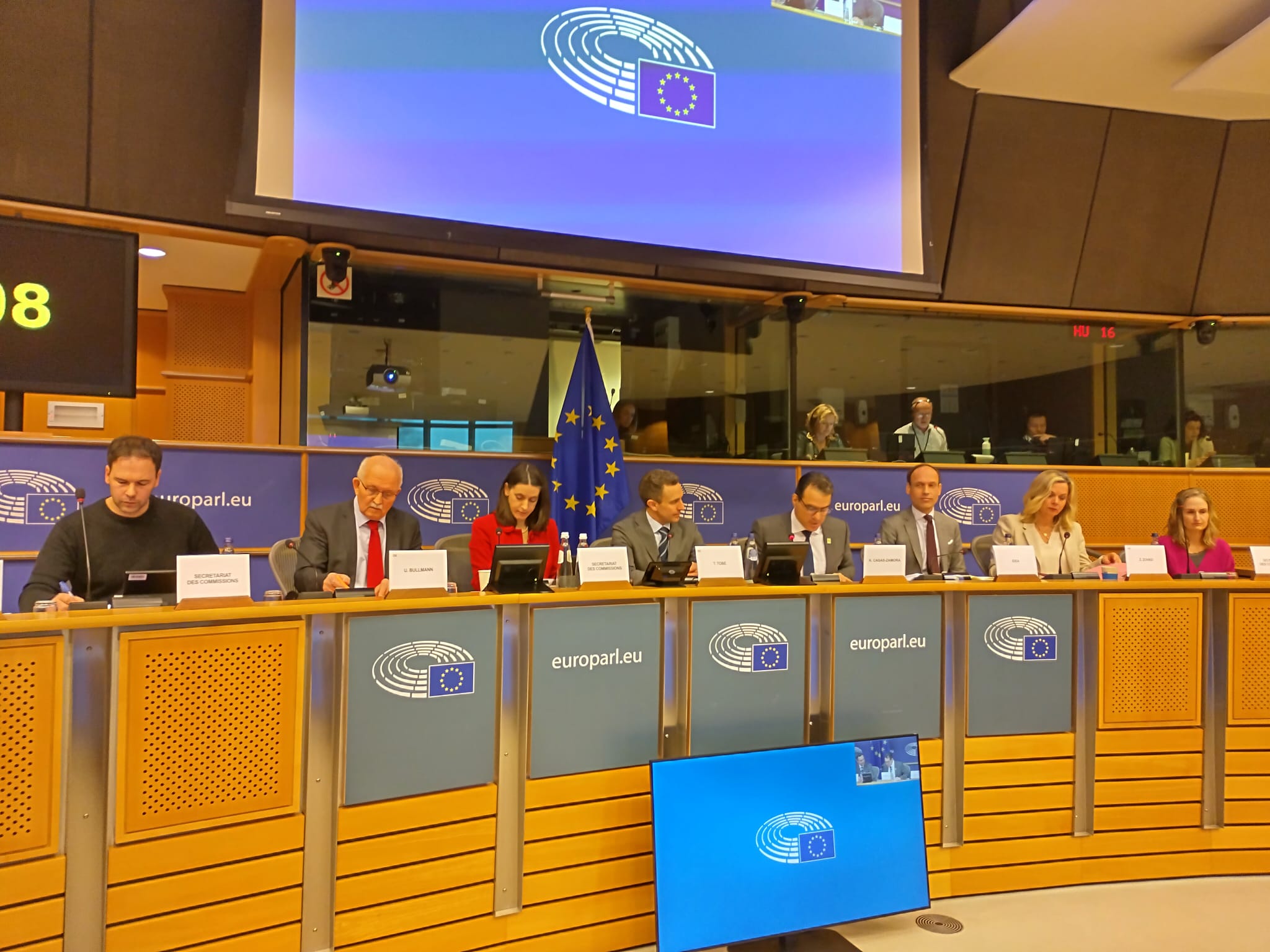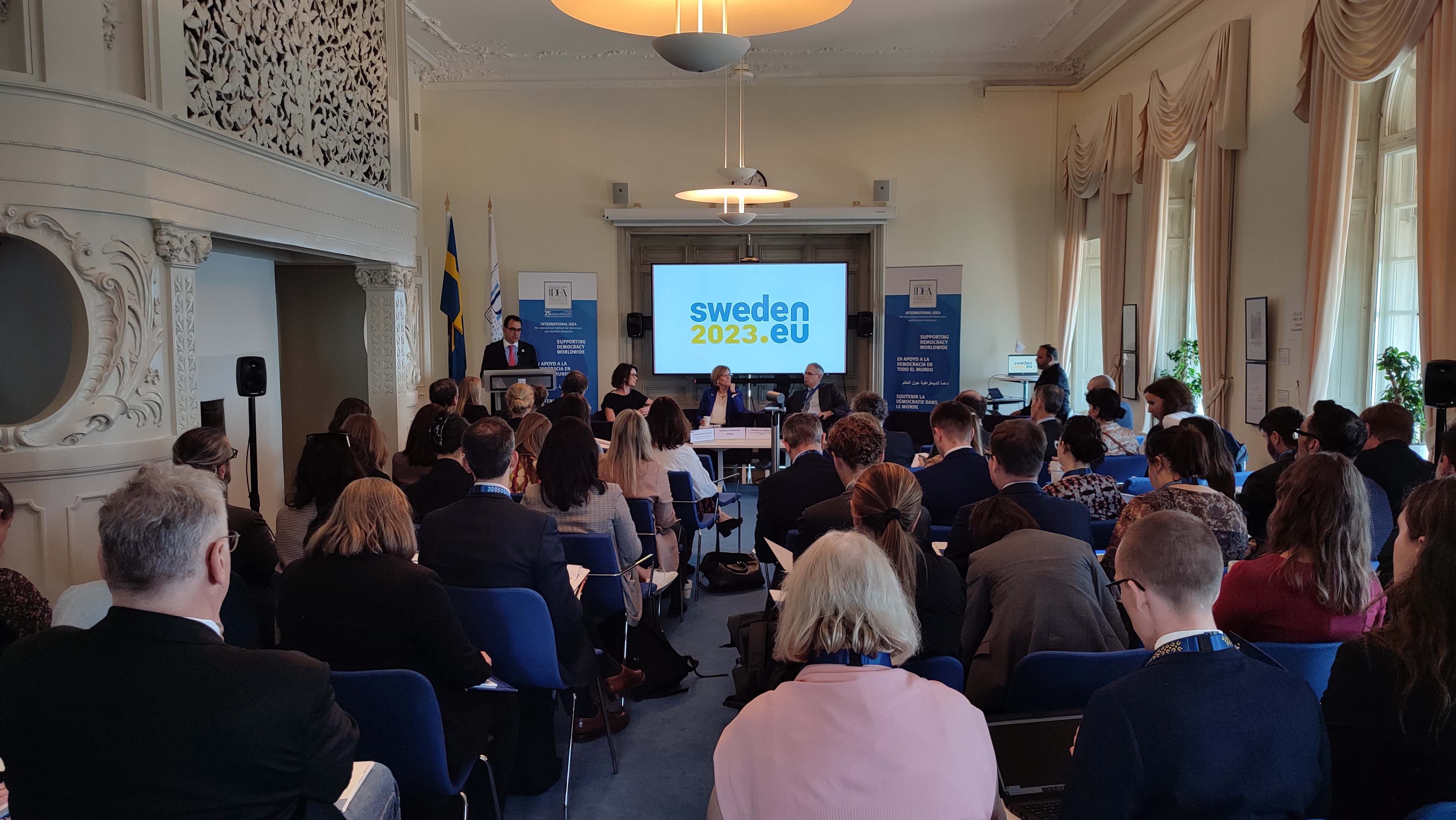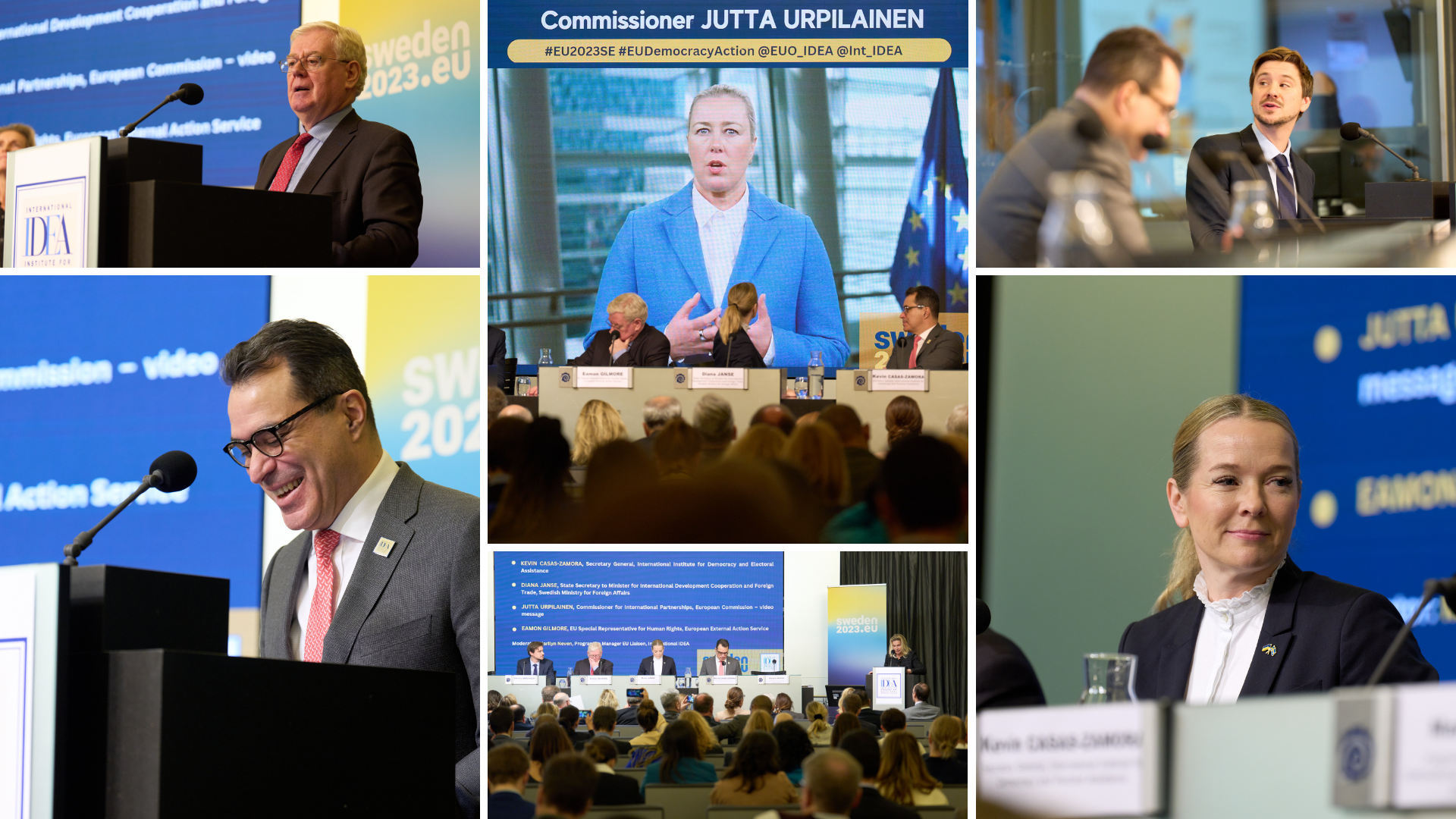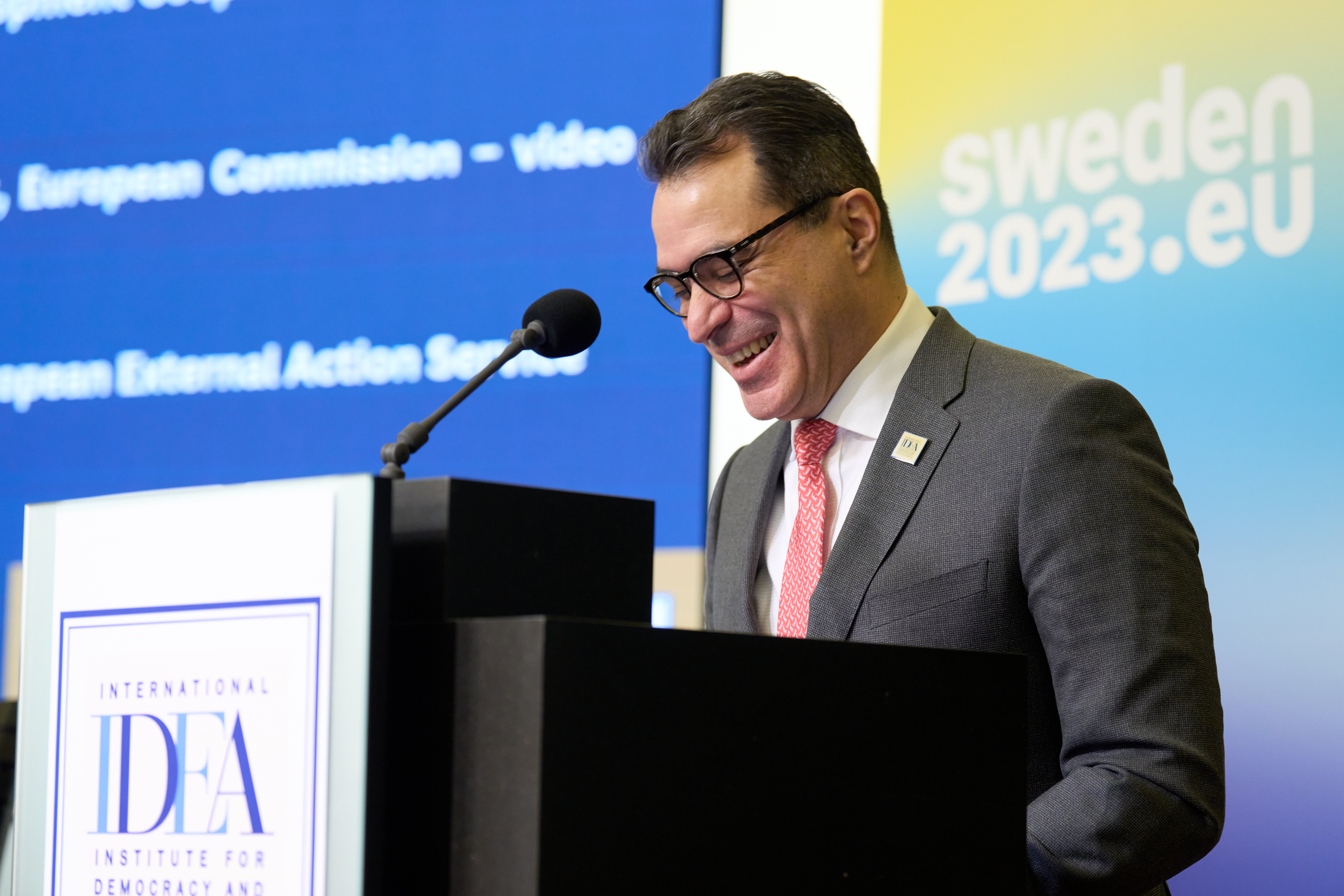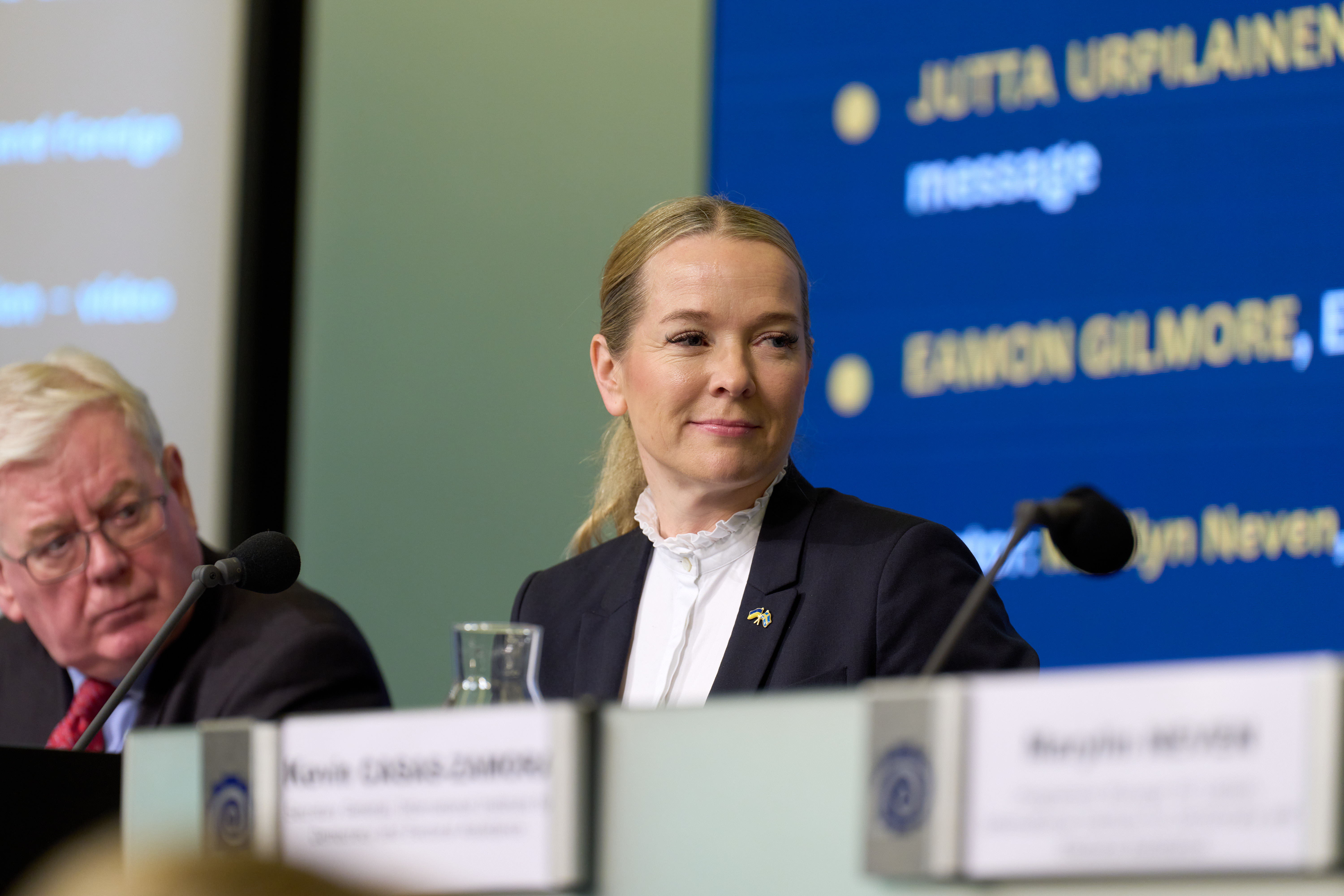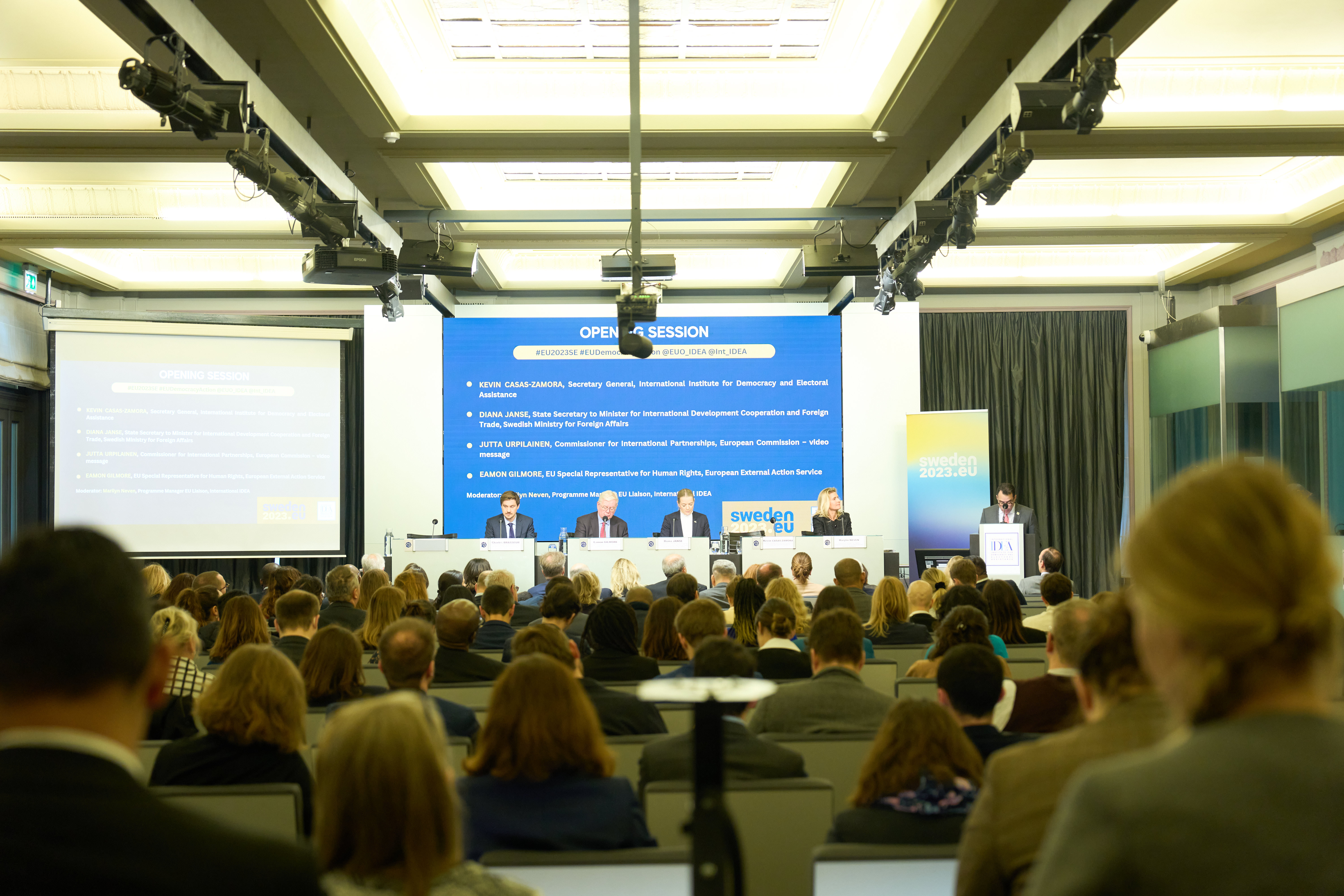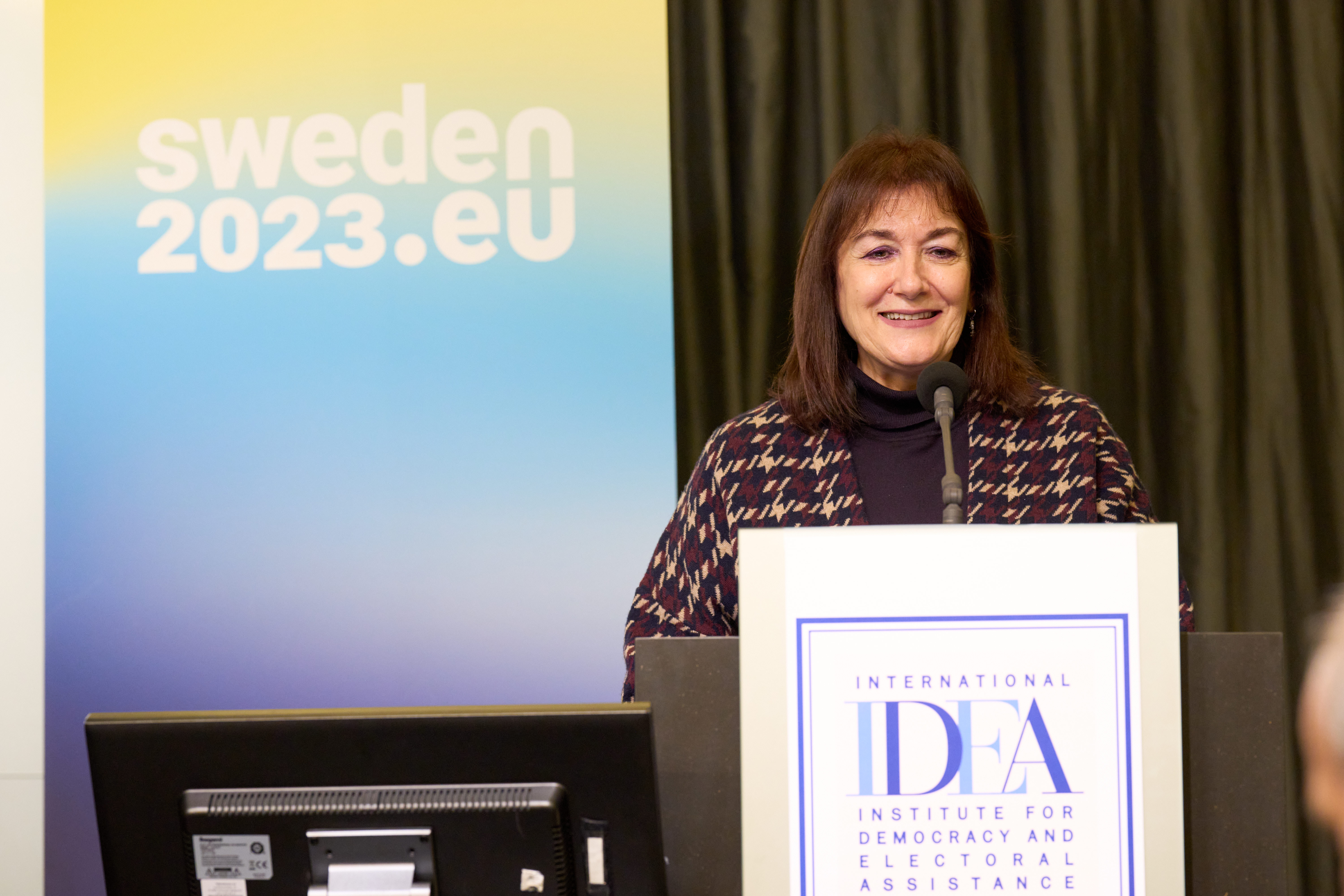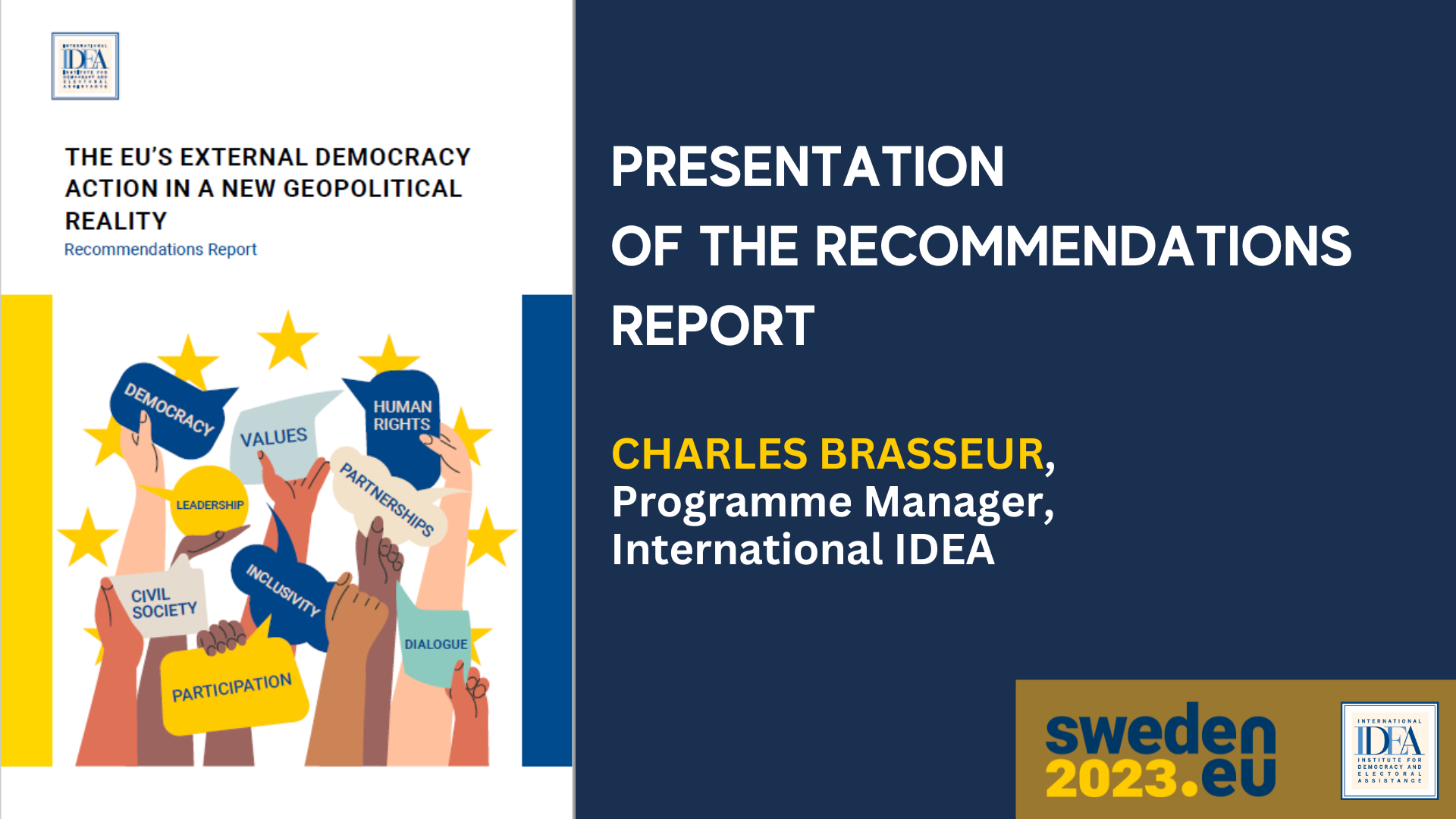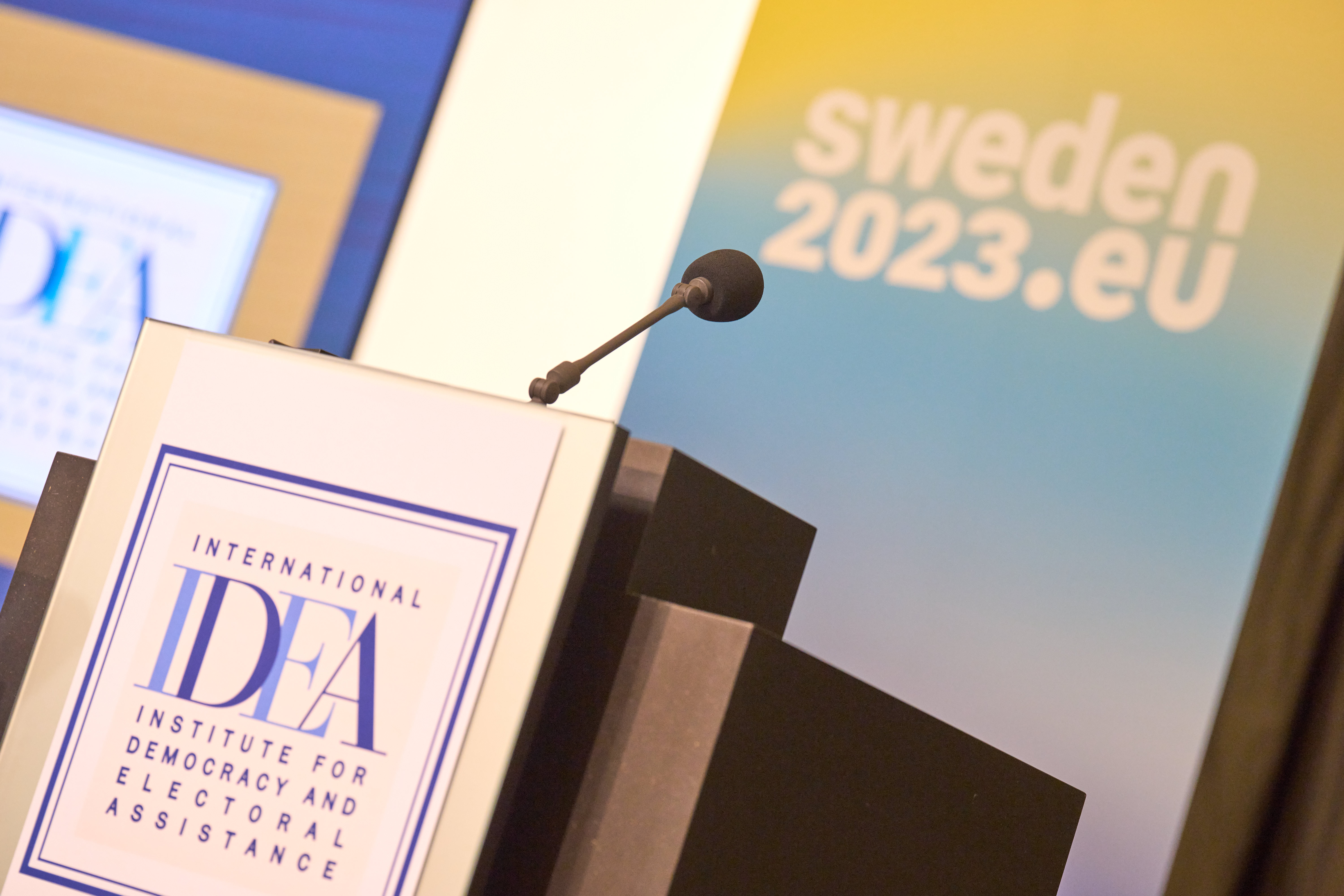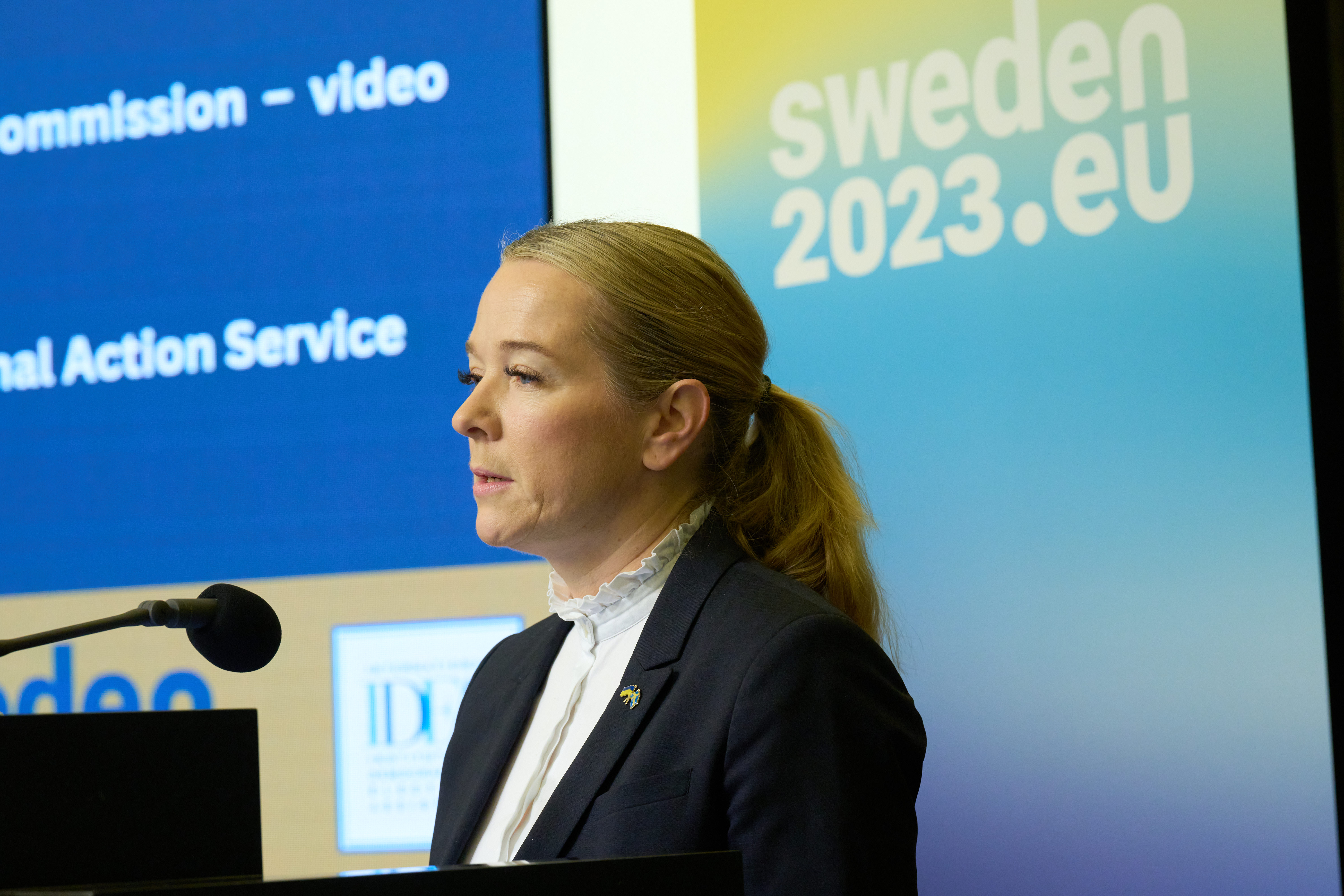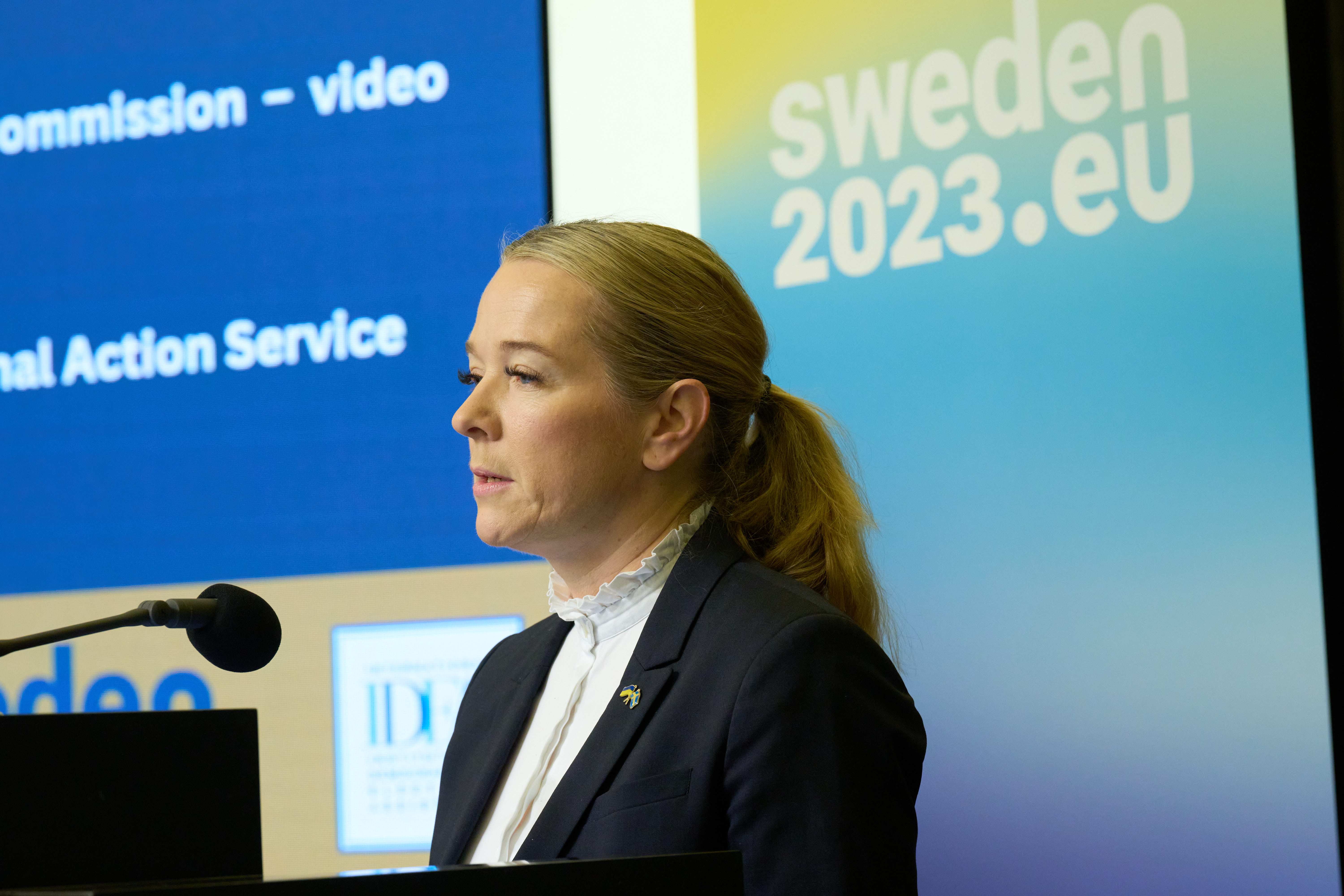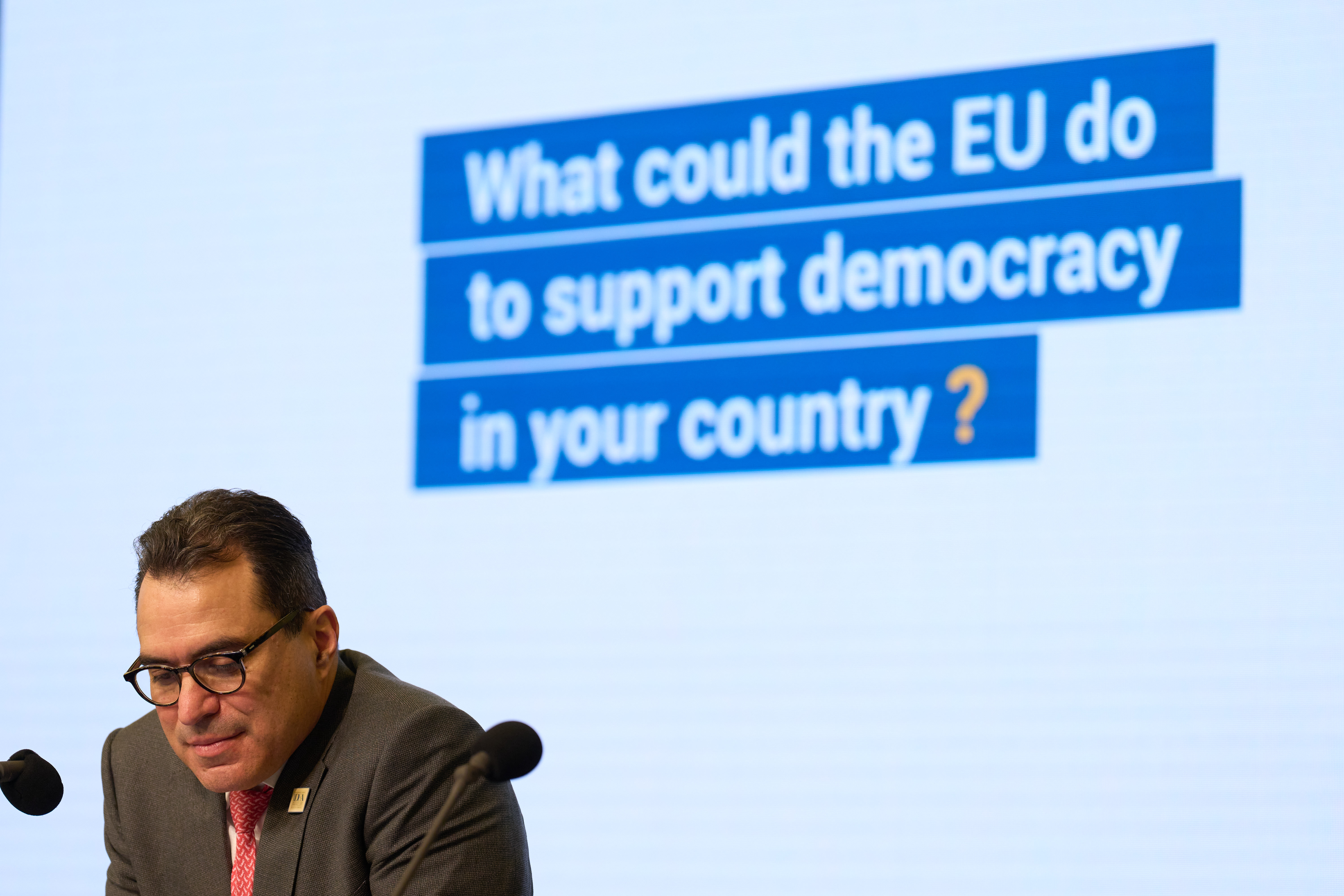Sweden EU Presidency and the Democracy Agenda
The EU has traditionally been one of the world’s staunchest advocates of democracy, but major changes have affected the global democracy landscape recently. With the support of the Swedish Ministry for Foreign Affairs, International IDEA led an analysis of the EU’s external democracy policy. The project’s recommendations stem from consultations with civil society in several world regions and with EU institutional and EU Member States officials. Their purpose is to inspire future EU democracy policies and discussions during Sweden’s 2023 Presidency of the Council of the EU and beyond.
Jump to

The Report looks at the EU’s external democracy policy in a rapidly evolving geopolitical environment and formulates strategic and practical recommendations to enhance EU external democracy policy-making and implementation.
Read more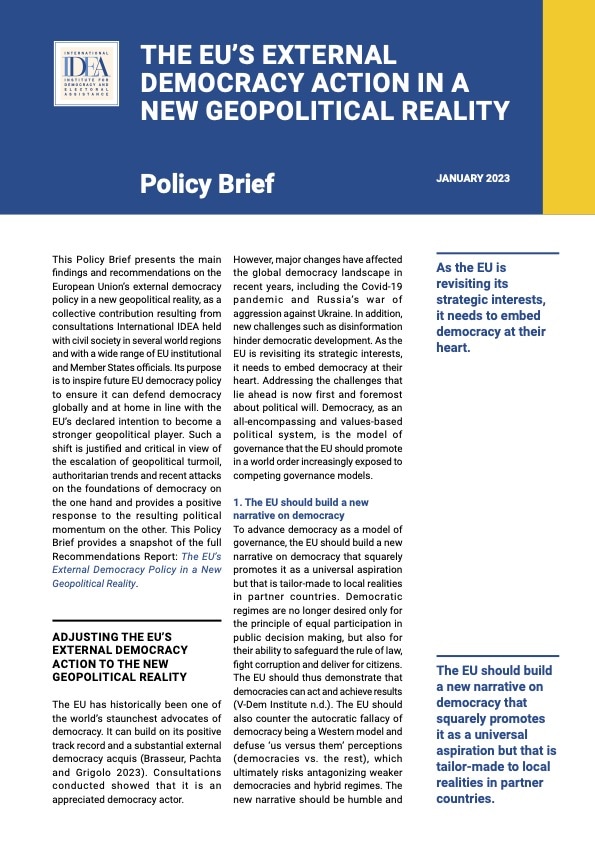
The Policy Brief presents the main findings and recommendations formulated in the Report. Its purpose is to inform EU decision-makers and other democracy stakeholders to ensure that the EU’s external democracy policy can defend and promote democracy globally in the most optimal way.
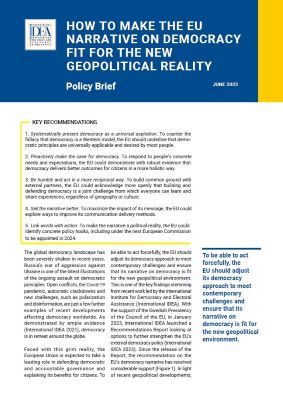
The Policy Brief argues that the EU narrative on democracy should be adjusted to respond to the new geopolitical reality. It proposes concrete ideas to substantiate this new narrative and provides recommendations to EU institutions and Member States.
Read moreTo inform the analysis of the EU´s external democracy action, the project conducted inclusive consultations with EU democracy stakeholders and civil society from across the globe.
- Use more systematically and coherently positive conditionality in a ‘more for more’ approach in relation to democracy performance. If the objectives are not achieved, the extra funding could be reallocated to civil society. In case of major democratic setbacks, the EU should not shy away from using negative conditionality to suspend its funding or its trade agreements.
- Systematize further democracy training of EU staff at headquarters and in EU Delegations, including in geographical services. Democracy courses should also be included in the curriculum for the European Diplomatic Academy.
- Ensure the proper linkages between the EU Action Plan on Human Rights and Democracy and the democracy components of the EU Gender Action Plan III and of the Youth Action Plan in EU External Action.
- Increase the staff of the Democracy and Electoral Observation Division working on democracy issues beyond the specific topic of elections reflecting in particular on the intertwinement of democracy and the rule of law.
- Increase the staff and resources available to the office of the EU Special Representative for Human Rights to provide more thematic expertise on democracy, including digital democracy. To enhance communication and awareness of the role and the promotion of democracy, it would be useful to add the words ‘democracy and governance’ to the official title of the EU Special Representative.
- Address the divide between the political and operations sections of the EU Delegations by establishing a standing working group convening all staff dealing with democracy issues.
- Develop further the early warning mechanisms to assess not only conflict related risks but democracy related threats. This could be done via the informal networks of local democracy actors and by using open data, such as the Democracy Tracker developed by International IDEA in 2022. Consider proactively using the EU’s ‘rapid response’ pillar of the Global Europe— Neighbourhood, Development and International Cooperation Instrument (GE-NDICI).
- Make sure democratic principles are guiding EU support provided through the European Peace Facility to ensure that the training and capacity building delivered to partner countries’ security forces is fully in line with EU values.
- Use the Generalised Scheme of Preferences (GSP+) as an entry point to push for democratic reforms in partner countries. EU trade agreements with partner countries could include a dedicated democracy clause based on a comprehensive country situation assessment.
- Systematically include democracy as a standalone point on the agenda of the EU Human Rights Dialogues with partner countries. Push for better involvement of local CSOs in these dialogues. Make sure all types of stakeholders, including CSOs working on democracy, are part of the preparatory consultations for the dialogues.
- Systematically consult EU Member States’ embassies when setting EU priorities for democracy support locally, including through Team Europe Democracy (TED) on the ground. Regularly involve embassies of non-EU democracies in TED, through a TED+ approach.
- Strengthen the relations between EU Delegations and the European Parliament. The visits of Members of the European Parliament to partner countries could be multiplied and used more strategically to pass strong political messages on democracy.
- Use the mechanisms to protect human rights defenders in a more proactive way to prevent rather than respond to crisis situations.
- Broaden the engagement of civil society in the design of EU democracy support priorities, by going beyond the traditional civil society partners and reaching out to religious groups, trade unions, rural constituencies, and other important societall actors that lack access to the international community.
- Systematize the innovative ways of supporting civil society tested by the Directorate-General for Neighbourhood and Enlargement Negotiations in the Eastern Partnership countries across all EU funding instruments, more specifically provision of core support, new funding strands to support grassroots CSOs, and working increasingly in local languages, including within sub-granting procedures.
- Develop a set of criteria to identify government organized non-governmental organizations (GONGOs) in cooperation with civil society and incorporate such a set of criteria into the EU funding guidelines.
- Participate in the Team Europe Democracy (TED) initiative regardless of respective national expertise on democracy support.
- Use TED as an additional platform to exchange data and perspectives on democracy and challenges posed by the new geopolitical reality.
- Strengthen information sharing and synergies between EU Member States’ embassies and the EU Delegations on the democracy agenda. Introduce a biannual (or more frequent) meeting dedicated to the implementation of the Action Plan on Human Rights and Democracy.
- Use the newly established strategic dialogue to push for democracy issues.
- Expand the Democracy Support and Election Coordination Group (DEG) mandate, especially its geographical scope of providing support to partner countries’ parliaments, and reinforce its resources.
- Combine and better coordinate the European Parliament democracy work with the work of national parliaments in the EU Member States.
- Give more prominence to civil society, allowing democracy CSOs to provide input not only during regular hearings but also more frequently during the plenary debates.
- Strengthen the relations between EU Delegations and the European Parliament. The visits of Members of the European Parliament to partner countries could be multiplied and used more strategically to pass strong political messages on democracy.
- Use the political weight of the EU Council Presidency to build consensus between EU institutions on the recommendations outlined in this Report.
- Encourage high-level discussions on the EU’s external democracy policy.
- Propose to introduce a structured dialogue with civil society on the issues pertinent to democracy at the level of the EU Council Working Parties or the Political and Security Committee.
- Push for replicating and systematizing successful Swedish civil society support modalities within EU democracy support.
- Make sure the Council Conclusions adopting the EU Action Plan on Human Rights and Democracy Mid-Term Review are political in their messaging, to reflect the political urgency of today’s state of democracy. When adopting the document, the Foreign Affairs Council would do well to engage in a high-level discussion about the EU’s external democracy policy. A European Democracy Summit could be considered.
- Identify a restricted number of top democracy priorities (disinformation; countering democratic backsliding and the closing of civic space; digital sphere; corruption) and set a clear timeline to achieve them within the limited implementation time left after the Mid-Term Review of the Action Plan is concluded.
- Mainstream democracy support further into the programming of the financial instruments during the preparations for the next Action Plan.
- Set up a series of EU-wide democracy cohorts to bring together all interested parties and especially civil society, EU Member States and the European Parliament into the preparations for the next EU Action Plan under an inclusive approach that reflects the urgency and need for collective action. The adopted work plans of Summit for Democracy cohorts can be used as an input to the debate on the new Action Plan.
- Synchronize the timeframe of the next Action Plan with the Multi-annual Financial Framework, to ensure that democracy priorities are properly reflected in EU funding instruments.
- Propose to move the implementation of the issues pertaining to the next Action Plan on Human Rights and Democracy to qualified majority voting in the Council of the EU, in line with article 22(1) of the Treaty on European Union.
Regional Considerations
Considerations for the way ahead
- The Generalised Scheme of Preferences (GSP+) played a very important role in the promotion of democracy, but the EU can be much more influential in supporting democracy with the leverage through trade and economic investments agenda. The current clauses on human rights standards in trade agreements can be strengthened and broadened so that they better facilitate democratic accountability. The EU should also consider space to include a compulsory democracy clause in every trade agreement, based on comprehensive country assessment.
- The EU needs to communicate, including on its views on democracy, more proactively and in local languages; the region has become a fertile ground for disinformation campaigns and the EU must increase its outreach to both the public and decision makers to refute disinformation.
- To this end, the EU should, among other steps, also strengthen collaboration with prominent universities in the Asia-Pacific region.
- The EU should have direct dialogue with local communities and support them through localized strategies with long-term perspectives. These strategies should aim at building resilient local democracy actors and local governments working on the ground to build democracy that is rooted in local issues.
- The EU should expand its democracy support in Central Asia and provide more direct financial support to local democracy actors, especially in countries with repressive regimes.
- The EU should use its strength as a global digital regulator and use this to support digital legislation that is pro-democracy. It should help to prevent national legislation being used for digital surveillance and repression, and ensure that legislation is adopted in line with democratic principles and procedures.
Considerations for the way ahead
- The EU should review the Eastern Partnership policy and architecture incorporating clear and tangible indicators on democracy performance into the EaP implementation roadmap for post-2020 priorities, namely in the investment pillar of the multilateral policy.
- The EU could adopt a staged accession process for Moldova and Ukraine, allowing them to move from one stage to the next when sufficient democratic progress is achieved but also backwards in the process if the country’s democracy regresses. The quality of democracy should come as the first criterion and should not be overlooked for geopolitical considerations.
- The EU should create a reasonable timeline and milestones for the accession of candidate countries so that enlargement fatigue of their population does not undermine the process of democratic reforms implemented within the EU accession process.
- The EU should socialize the government representatives of the candidate countries to the EU democratic meeting culture; their representatives should be involved in EU high-level meetings, as well as in selected meetings of EU Council Working Parties and EU agencies where it does not pose a security risk and is an added value. Such experience would contribute to building impartial administration as one of the attributes of democracy.
- The deepening autocratization of Belarus and Azerbaijan should be the top concern for the EU when devising policies towards these two countries. The presence of an autocratic state in its immediate Neighbourhood has demonstrated the security impact on the EU, as Belarus has become a proxy aggressor and poses a major security risk to the EU. Deepening autocratization in Azerbaijan should be reflected in the EU’s negotiations and text of the new Partnership Agreement in the form of stronger commitments to democratic reforms. The EU should adopt a clearer approach for its dealing with the country premised on these commitments.
- Spending on youth is low relative to their demographic representation in the EaP countries. The EU should increase its support to youth as drivers of democratic change and convince the partner governments to invest more, considering a 50/50 approach or at least incentivize an increase in national-level investments in youth policies and youth.
Considerations for the way ahead
- The EU should continue to support the integrity of electoral processes. An area that particularly needs to be addressed is the high levels of electoral violence, both online and offline, that have risen further due to disinformation and polarization.
- The EU should promote inclusive participation mechanisms (including Indigenous populations) at the national and local level to increase trust in democracy across all sectors of society.
- The EU should support political parties as actors and organizations to ensure that they can play their democratic and representative role to the fullest.
- The EU should work on capacity building and training for politicians on the interlinkages between democracy and new ICT and digital topics, including in the legislative area where the EU is considered a global rules setter.
- The EU should keep its green conditionality in economic relations with Latin American and Caribbean countries and link it with its democracy assistance agenda. Through such linkages, environmental and climate activists who are often endangered would also be better protected.
Considerations for the way ahead
- Despite Russia’s war against Ukraine, the EU should maintain its efforts in peace and democracy building, conflict resolution or recovery in countries such as Libya, Palestine, Syria and Yemen.
- The EU could better link its democracy agenda to its efforts to reduce inequalities and improve the socioeconomic conditions of the most vulnerable segments of the population.
- The EU democracy approach to the region, which is one of the toughest in which to achieve democratic progress, could be more political, applying conditionality more often and devising long-term strategies to support democracy actors.
- The EU should focus on democratic civic education, supporting, for example, CSOs that work on citizens’ empowerment through the knowledge of their rights and obligations.
- The EU should increase its support to youth as drivers of democratic change in the region and facilitate the emergence, training and empowerment of new democratic elites.
- The EU should replicate in the Union for the Mediterranean framework the modalities of its engagement with civil society in the Eastern Partnership. A systemic approach to the cooperation of public institutions, civil society and media would strengthen the implementation of the Union for the Mediterranean agenda.
Considerations for the way ahead
- The EU should keep investing in state capacity building in Africa, supporting the development of well-functioning democratic institutions that have the tools and capacities to effectively implement policies and deliver on citizens’ basic needs.
- To stress the universality of democracy aspirations, the EU should build on already existing African democracy tools (e.g. the African Charter on Democracy, Elections and Governance) and use these regional commitments when engaging with African parties, even in terms of conditionality.
- The EU should support gender equality strategies that promote women’s participation in politics. This could be done through transpartisan councils of women promoting quotas, legal provisions for representativity in election lists or parties, and norms to target the violence against women politicians.
- African youth should be empowered to become a democratic actor by being an active observer of government policy implementation through youth checks.
- On climate governance, the EU should work mainly on cross border programmes that involve local and marginalized communities, promote transnational cooperation and local participative democracy.
- To seize the digital revolution’s potential for democracy, the EU should ensure that national governments act upon their commitments to guarantee access to the Internet and use the EU’s own digital regulatory experience to support democratic digital rules in Africa. The EU should also support digital solutions to associate citizens in the co-construction of public institutions and services (e.g. participatory decision making or budgeting).
Considerations for the way ahead
- The EU should clearly define the timeline for EU accession, together with a merit-based system related to democratic reform. If the milestones of the timeline are too distant, it could be used by different forces to further mainstream Euroscepticism.
- The EU should include the Western Balkan partners in the work of the EU Council at a high level and continue the good practice of organizing high-level summits in the region (as with the 2022 EU–Western Balkans summit in Tirana). Discussions on democratic development should be a regular point on the summit agenda. EU Council Presidency can organize meetings after the official EU Council ministerial meetings to discuss with partners the points of common interest engaging partners more closely with the EU democratic culture.
- The EU should involve Western Balkan partners in additional EU programmes and initiatives. The initiatives and programmes led by line Directorate-Generals should in particular be used more strategically. Further involvement of public officials would contribute to building an impartial administration as one of the attributes of democracy.
- The media landscape varies from fragile to largely government-controlled across the region. The EU should provide greater support to media literacy, media pluralism and freedom as a way to promote democratic development and fight disinformation.
- The EU needs to devise strong strategic communication on quantitative and qualitative progress of democratic reforms and support provided within the EU accession process framework.
- To support the progress evaluation and strategic communication, the EU would benefit from introducing a comprehensive democracy assessment framework to grasp trends and help design calibrated responses in partner countries.
- Involving civil society in democracy work remains a must; the EU should recommit to substantive dialogue with genuine CSOs in the countries where the engagement declined and provide a feedback loop after consultations so that the CSOs can follow up. Under the new Instrument for Pre-accession Assistance, the EU should upscale localized support and support to grassroots CSOs.

